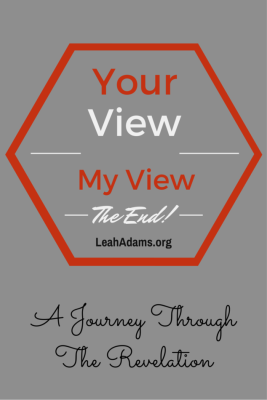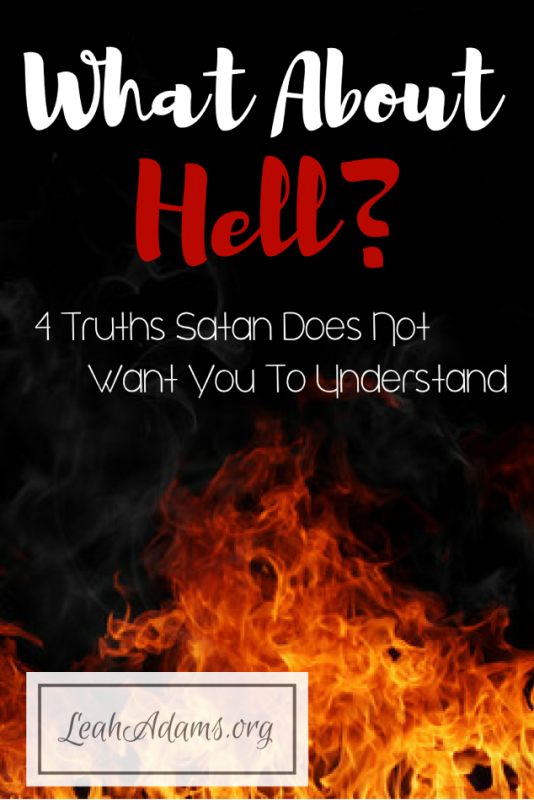Welcome back! Last week in our first post in our series on the book of The Revelation entitled The End!, we examined a bit of background for the book. Did you miss that post? If so, go here to read it. Are you a member of The End! Facebook page where we continue our discussion of The Revelation? If not and you would like to be, please email me at ( pointministries@gmail.com ) and I will add you.
The book of The Revelation can be divided into three sections based on Jesus’ words to John in Revelation 1:19. He instructed John to write “the things which you have seen, and the things which are, and the things which will take place after this.” So, the book is divided into three sections:
- Which you have seen – Chapter 1
- Which are – Chapters 2-3
- Which will take place – Chapters 4-22
Today I would like to offer you an opportunity to consider the different views that have been taken of the book of The Revelation. There are five historical views that we will cover today. I’m eager to see which you believe is the most accurate picture of The Revelation.
Preterist View
This view holds that Revelation pertains to events taking place in John’s day rather than in the future. Many who hold this view also believe in the early dating of the book, AD 68. The problem that I have with this view is that it ignores John’s claim that the book is prophecy in Revelation 1:3.
Historicism View
This view holds that Revelation is a panorama of church history. This view requires generous use of allegory and also ignores John’s claim that the book is prophecy. Those who hold to this view believe that each of the seven churches represents an era or period of church history.
Ephesus – represents the church at the end of the apostolic era, continuing to function but with a receding of its first love.
Smyrna – the era of Roman persecution, beginning around AD 98 and continuing through the reign of Constantine (AD 313).
Pergamos – the church in the period immediately following Constantine’s embracing of Christianity when the church became married to the world, and then becoming theologically and morally apostate.
Thyatira – the church of the Middle Ages, full of teaching of heresy.
Sardis – the church of the Reformation when the majority of the church was dead with the exception of a few faithful believers.
Philadelphia – the church of missionary expansion, beginning with William Carey’s work in India in 1792 and continuing to the contemporary period.
Laodicea – the church of the present period
Well known advocates of this view include Wycliffe, Knox, Tyndale, Luther, Calvin, Zwingli, Wesley, Edwards, Finney, Spurgeon.
Idealist View
Champions of this view postulate that the symbols in the text of The Revelation are to be understood as allegories of spiritual truths. The book depicts the cosmic struggle of good and evil, while forecasting the eventual triumph of God’s purpose.
Advocates of this view include Augustine and Jerome
Futurist View
This view believes that chapters 4-22 form a prophecy of John that will take place in the future.
Well known advocates of this view include Papias, Irenaeus, Justin, Hippolytus and a large percentage of the modern church
Eclecticism View
This view is a modified idealist view with few supporters.
Personally, I would cozy up to the Futurist View. John was very clear that The Revelation was prophecy, and I’m going with what HE wrote. With that said, I can certainly see how one could make the seven churches fit into the Historicist View. The problem with this view is that this ignores John’s assertion that Revelation is prophecy. The advocates of the historicist view, however, are definitely an A list! Those are some impressive names and for that reason, I have to give that view at least some credence.
That’s it for today! Let’s engage. Here are some questions for your pondering and discussing pleasure.
- Do you have a preference for one view of The Revelation over another? Share with us which view resonates with you the most and why.
- Was there anything in today’s lesson that will strengthen your faith for The End and for today? If so, please share it in the comments.
LEAH’S DISCLAIMERS
No one on this earth understands everything about The Revelation
I am not a biblical scholar. I do not have all the answers that will be posed in this journey. I am willing to be taught
The Scriptures will be my primary text for this study, however, I will refer to commentaries and lexicons in my posts
I will offer my opinions on the texts based on my own personal study. I encourage you to do the same
I WILL NOT tolerate snarky, condescending, or ugly comments. They will be deleted. There are many interpretations of The Revelation and we can agree to disagree on certain points











